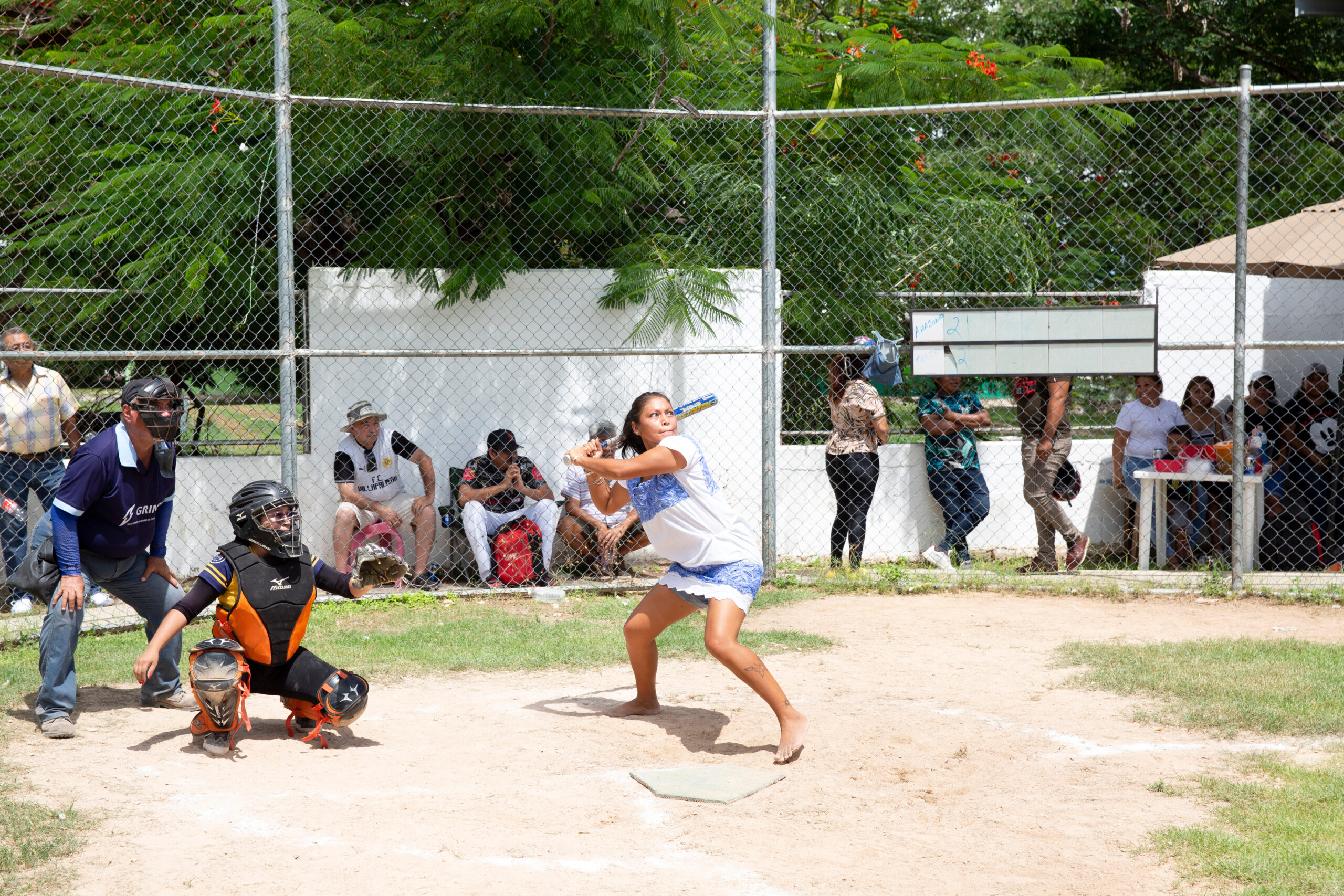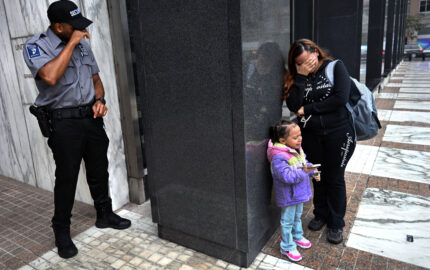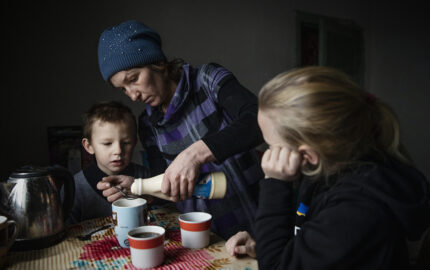Playing sports isn’t considered part of a woman’s life in traditional Maya culture. But Las Amazonas of Yaxunah, an Indigenous women’s softball team based in Mexico’s Yucatán Peninsula, is challenging those boundaries.
The team, which was formed in 2019 and has players between the ages of 13 and 62, has become famous in Mexico for playing barefoot and wearing traditional Mayan dresses known as huipiles. Founding members of Las Amazonas told me the idea first came about around 2018, when government health officials launched a series of free aerobic exercise programs in Yucatán to combat rising rates of obesity and diabetes. But the residents were not interested in Zumba or dance. They wanted to play softball. So a few women in Yaxunah were inspired to start their own softball team called Las Amazonas de Yaxunah.
They started off practicing in local parks, with little more than a makeshift bat carved from a piece of wood and a single borrowed baseball. Members went door to door to invite family and friends to play, and ventured into neighboring communities to ask women to join their practices. In those early days, the founding members relied on word of mouth to attract new players and build momentum, despite pushback from their partners for going against tradition and cultural norms.
Since then, they’ve enjoyed a growing local and international fan base, traveling across the country to play against established softball teams. In 2023, the Mexican government created the “League of Change,” Yucatán’s first women’s softball tournament, in which teams from 106 municipalities participated and competed in the inaugural competition. Thanks to Las Amazonas’ popularity, some villages doubled the number of women’s softball teams. Yet Las Amazonas maintain a unique profile in Mexico for eschewing standard softball uniforms in favor of traditional Maya dresses.
I first found out about the team in 2021 when I ran into some of their players in Telchac Puerto. I was traveling with my family when I spotted them. They were wearing their iconic huipiles. When I approached them and asked who they were, they told me they were a traveling all-female softball team. I was eager to learn more. I had recently reported on women working in regenerative agriculture, and I wanted to continue working on stories about female empowerment in Indigenous communities.
Gender inequality is a pressing issue, especially in rural Mexico. The Mexican national statistics agency recently released a report showing that violence against women in Mexico has increased by 70% in the last five years — and Indigenous women are most at risk. Members of Las Amazonas and other female athletes say playing sports has given them more freedom. When Las Amazonas travel for tournaments, some of their husbands stay home to take care of the children. The women are often photographed and interviewed by Mexican media and international outlets like The Guardian and NPR, making their husbands and family members proud.
I decided to photograph Las Amazonas to show how the team’s stardom shifted beliefs held by men in the area. Many men were once critical of the players but now show up to support the team, cheering in the stands. I wanted to capture how playing softball empowers these women by providing them a pathway to life outside the domestic sphere and inspires new generations of girls.
I took this photo in September 2023. That day, Las Amazonas traveled by bus from Yaxunah to Itzincab, a two-hour trip, to play against Las Tercas de Itzincab (another all-women team) at the Paseos de Itzincab multisport complex.
It was midday. The sweltering heat reached 104 degrees Fahrenheit during the game. Spectators and fans cheered for Mariela Beatriz Pacheco Pech, 32, a Las Amazonas player. She stood at the plate with her bat, concentrating with her eyes on the ball. She wore her white huipil with blue embroidery with pride. I took the photograph because she looked strong, feminine, and focused.
Mariela is a housewife and lives in Yaxcabá, a community near Yaxunah, with her family. She has three children — a 14-year-old son and two daughters, ages seven and four. She started playing with the team two years ago, when her ex-schoolmate Abi invited her to join.
“I like playing sports. It is a distraction. You forget for a moment about your problems at home, about your work, and you concentrate on one thing,” said Mariela, whose team won the game 16-2. “I have fun, and I like it more than anything. It gives me enjoyment. It gives me relief. And it allows me to discover more places and meet other people.”



